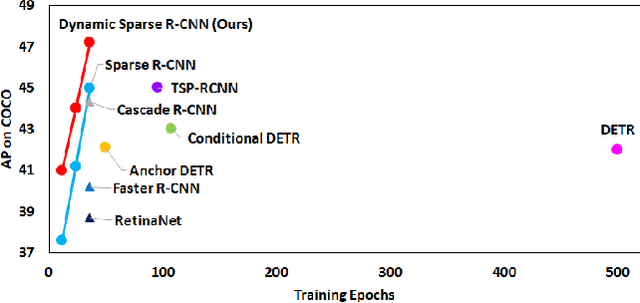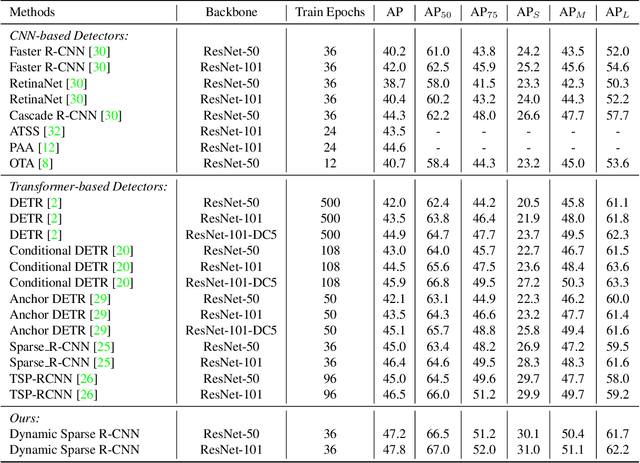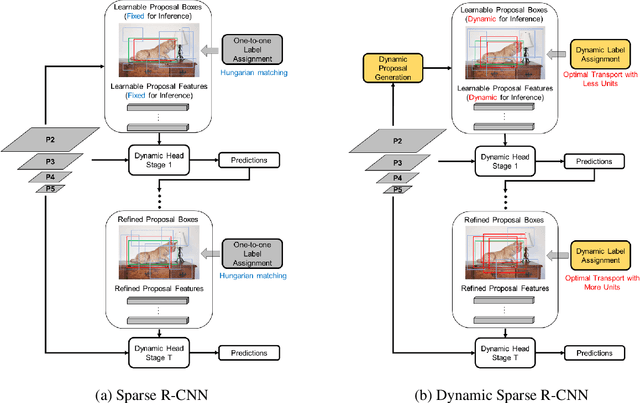Fengming Liu
Dynamic Sparse R-CNN
May 04, 2022



Abstract:Sparse R-CNN is a recent strong object detection baseline by set prediction on sparse, learnable proposal boxes and proposal features. In this work, we propose to improve Sparse R-CNN with two dynamic designs. First, Sparse R-CNN adopts a one-to-one label assignment scheme, where the Hungarian algorithm is applied to match only one positive sample for each ground truth. Such one-to-one assignment may not be optimal for the matching between the learned proposal boxes and ground truths. To address this problem, we propose dynamic label assignment (DLA) based on the optimal transport algorithm to assign increasing positive samples in the iterative training stages of Sparse R-CNN. We constrain the matching to be gradually looser in the sequential stages as the later stage produces the refined proposals with improved precision. Second, the learned proposal boxes and features remain fixed for different images in the inference process of Sparse R-CNN. Motivated by dynamic convolution, we propose dynamic proposal generation (DPG) to assemble multiple proposal experts dynamically for providing better initial proposal boxes and features for the consecutive training stages. DPG thereby can derive sample-dependent proposal boxes and features for inference. Experiments demonstrate that our method, named Dynamic Sparse R-CNN, can boost the strong Sparse R-CNN baseline with different backbones for object detection. Particularly, Dynamic Sparse R-CNN reaches the state-of-the-art 47.2% AP on the COCO 2017 validation set, surpassing Sparse R-CNN by 2.2% AP with the same ResNet-50 backbone.
 Add to Chrome
Add to Chrome Add to Firefox
Add to Firefox Add to Edge
Add to Edge